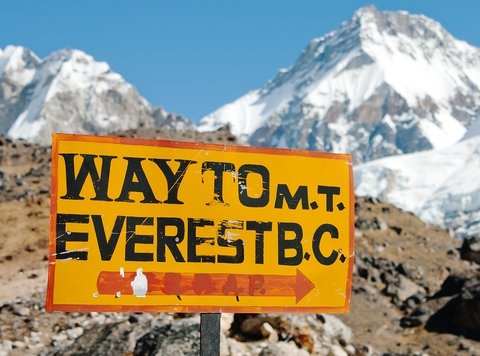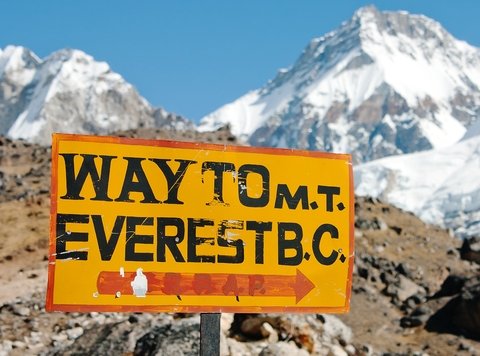
Runner’s high is a state of euphoria experienced during prolonged running or sustained aerobic exercise attributed to an increase of endorphins in the blood. It’s a familiar feeling to marathoners and other distance runners.
Now imagine running a marathon on Mount Everest, the highest marathon in the world with a start line at Gorak Shep – 18,050 feet in elevation, close to Everest Base Camp in Nepal. This year, 54 runners participated.
The annual event is usually held in May to mark the anniversary of the first conquest of the mountain by Tenzing Norgay and Edmund Hillary, but organizers postponed the Tenzing-Hillary Everest Marathon until October this year after a massive earthquake in April triggered an avalanche that left thousands dead, including 18 people at base camp. By moving the marathon to October they hoped to send a positive message about normalcy returning to Nepal and to help revive their tourist industry.
This year’s event drew runners from all over the world, and these athletes donned goggles and trekking boots, braving icy temperatures on the snow-covered trails. The weather wasn’t the only challenge to participants since a race at this altitude is always difficult.
The 26.2 mile route weaves past Buddhist monasteries and herds of yak, leads runners over suspension bridges, and is considered by many to be the most adventurous trail run in existence. The breathtaking views weren’t the only thing leaving runners gasping: the air at base camp contains just half as much oxygen as at sea level, so navigating inclines on the rocky mountain trail had some runners literally breathless.
Everest represents Nepal to the world and the message was clear: the race signifies that Nepal is once again safe after April’s devastating 7.8 magnitude earthquake. Money raised through the event is earmarked for post-quake reconstruction. Half of the runners this year were from Nepal: no surprise since acclimating to the altitude takes a period of weeks.
Winner Bhim Bahadur Gurung finished with a time of four hours, one minute and 54 seconds. Nepal made up the first three finishers with the fastest foreigner, Andrew Leon Skidmore completing his run in four hours, 15 minutes and 20 seconds.
Photo credit: Dreamstime









